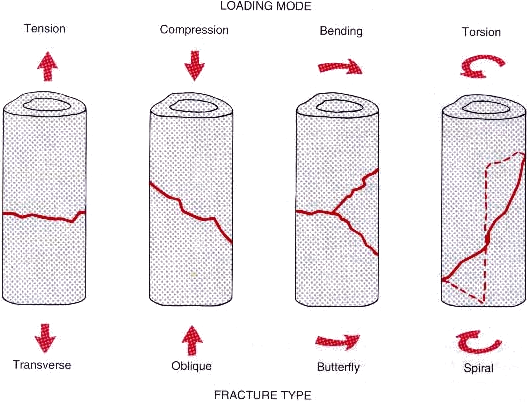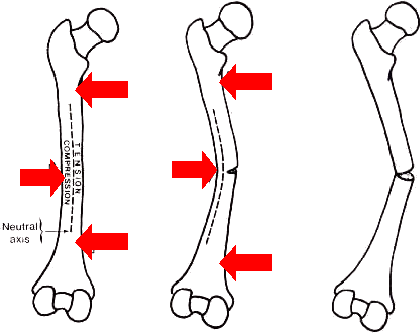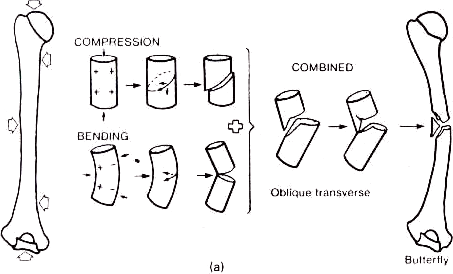5.8 Properties of bone
5.8.1 Mechanics of bone: anisotropy
- Isotropy –
- Most metals – stainless, titanium, cobalt chrome
- Anisotropy –
- Strength and modulus both depend on direction
- Bone is weakest in shear, then tension, then compression.
| Compression | \(< 212\) N/m\(^2\) |
| Tension | \(< 146\) N/m\(^2\) |
| Shear | \(< 82\) N/m\(^2\) |
5.8.2 Types of bone fracture

@Browner1998
5.8.3 Types of bone fracture
5.8.3.1 Axial load

- In tension, failure occurs due to normal stress
- In compression, failure occurs on the plane where shear is maximized
5.8.4 Types of bone fracture
5.8.4.1 Bending load


- Compression strength is greater than tensile strength
- Fails in tension, possibly with a butterfly fragment
5.8.5 Types of bone fracture
5.8.5.1 Bending and compression load

@Tencer1994
- Combined compression and bending leads to oblique fracture with butterfly fragment
5.8.6 Types of bone fracture
5.8.6.1 Torsion
- Like stress, components of strain depend on direction of observation
- When torsion applied, tension occurs on a diagonal
- Fractures propagate perpendicular to this tension diagonal
- Spiral fracture 45\(^o\) to the long axis
